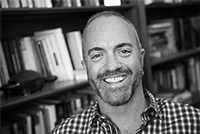Accidents and the Origins of Forensic Reason

Accidents have troubled Western thought and discourse since Aristotle. In the modern technological era, the ancient problem of the accident has assumed a peculiar and terrible aspect, its brutal reality reflected in every industrial mishap, its violent intensity exhibited in every high-speed crash, its frightful enormity demonstrated in every engineering disaster. Today, forensic logics, devices, and practices—all elements of what I call "forensic reason"—offer themselves as a sort of solution to the problem of technological accidents. In this talk, I trace the rise of forensics back to nineteenth-century attempts to scientifically ascertain the causes of mechanical and structural catastrophes. I emphasize the role played by forensic reason in the shaping of modern perceptions of accidents and failures, and in the creation of a particular ethos of safety and protection.










